|
| |
| FIRST ANNUAL IAAC LITERARY FESTIVAL |
in collaboration with The South Asia Institute,
Columbia University and India Abroad
NOVEMBER 7-9, 2014
|
|
|
Session 3B
Writing between worlds: Immigrant Issues
Moderated by Johanna Lessinger |
 |
Marina Budhos
Tell us we’re Home
Ask Me No Questions |
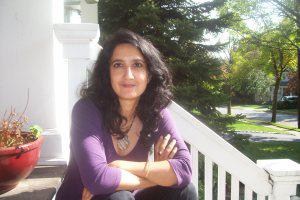 Marina Budhos is an author of award-winning fiction and nonfiction, for both adults and young adults. Ask Me No Questions has received numerous honors, including ALA Best Books and Notable, winner of the first James Cook Teen Book Award, NY Public Library Books for the Teenage, Chicago Public Library's Best of the Best. Her most recent young adult novel, Tell Us We’re Home was praised by the New York Times as “elevated by writing that is intelligent and earnestly passionate” and is a Scholastic Book Club selection. Her nonfiction book, Remix: Conversations with Immigrant Teenagers, was re-released in 2007, and is used throughout the country in ELL classrooms, university classrooms, and as a companion text to her other works. Marina Budhos is an author of award-winning fiction and nonfiction, for both adults and young adults. Ask Me No Questions has received numerous honors, including ALA Best Books and Notable, winner of the first James Cook Teen Book Award, NY Public Library Books for the Teenage, Chicago Public Library's Best of the Best. Her most recent young adult novel, Tell Us We’re Home was praised by the New York Times as “elevated by writing that is intelligent and earnestly passionate” and is a Scholastic Book Club selection. Her nonfiction book, Remix: Conversations with Immigrant Teenagers, was re-released in 2007, and is used throughout the country in ELL classrooms, university classrooms, and as a companion text to her other works.
Ms. Budhos has received an EMMA (Exceptional Merit Media Award), a Rona Jaffe Award for Women Writers, and has twice received a Fellowship from the New Jersey Council on the Arts. She has been a Fulbright Scholar to India, given talks throughout the country and abroad, and is currently an associate professor of English and Asian Studies at William Paterson University. |
|
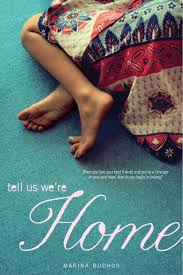 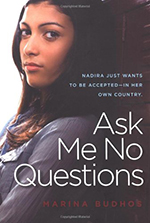 |
|
| |
|
| |
Vivek Bald
Bengali Harlem |
 Vivek Bald is a scholar, writer, and documentary filmmaker whose work focuses on histories of migration and diaspora, particularly from the South Asian subcontinent. He is the author of Bengali Harlem and the Lost Histories of South Asian America (Harvard University Press, 2013), and co-editor, with Miabi Chatterji, Sujani Reddy, and Manu Vimalassery of The Sun Never Sets: South Asian Migrants in an Age of U.S. Power (NYU Press, 2013). His films include "Taxi-vala/Auto-biography," (1994) which explored the lives, struggles, and activism of New York City taxi drivers from India, Pakistan, and Bangladesh, and "Mutiny: Asians Storm British Music" (2003) a hybrid music documentary/social documentary about South Asian youth, music, and anti-racist politics in 1970s-90s Britain. Bald is currently working on a transmedia project aimed at recovering the histories of peddlers and steamship workers from British colonial India who came to the United States under the shadows of anti-Asian immigration laws and settled within U.S. communities of color in the early 20th century. The project consists of the Bengali Harlem book as well as a documentary film, “In Search of Bengali Harlem,” (currently in production), and a digital oral history website in development at bengaliharlem.com. Vivek Bald is a scholar, writer, and documentary filmmaker whose work focuses on histories of migration and diaspora, particularly from the South Asian subcontinent. He is the author of Bengali Harlem and the Lost Histories of South Asian America (Harvard University Press, 2013), and co-editor, with Miabi Chatterji, Sujani Reddy, and Manu Vimalassery of The Sun Never Sets: South Asian Migrants in an Age of U.S. Power (NYU Press, 2013). His films include "Taxi-vala/Auto-biography," (1994) which explored the lives, struggles, and activism of New York City taxi drivers from India, Pakistan, and Bangladesh, and "Mutiny: Asians Storm British Music" (2003) a hybrid music documentary/social documentary about South Asian youth, music, and anti-racist politics in 1970s-90s Britain. Bald is currently working on a transmedia project aimed at recovering the histories of peddlers and steamship workers from British colonial India who came to the United States under the shadows of anti-Asian immigration laws and settled within U.S. communities of color in the early 20th century. The project consists of the Bengali Harlem book as well as a documentary film, “In Search of Bengali Harlem,” (currently in production), and a digital oral history website in development at bengaliharlem.com. |
| |
| Synopsis |
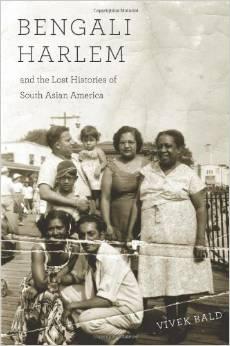 In the final years of the nineteenth century, small groups of Muslim peddlers arrived at Ellis Island every summer, bags heavy with embroidered silks from their home villages in Bengal. The American demand for “Oriental goods” took these migrants on a curious path, from New Jersey’s beach boardwalks into the heart of the segregated South. Two decades later, hundreds of Indian Muslim seamen began jumping ship in New York and Baltimore, escaping the engine rooms of British steamers to find less brutal work onshore. As factory owners sought their labor and anti-Asian immigration laws closed in around them, these men built clandestine networks that stretched from the northeastern waterfront across the industrial Midwest. In the final years of the nineteenth century, small groups of Muslim peddlers arrived at Ellis Island every summer, bags heavy with embroidered silks from their home villages in Bengal. The American demand for “Oriental goods” took these migrants on a curious path, from New Jersey’s beach boardwalks into the heart of the segregated South. Two decades later, hundreds of Indian Muslim seamen began jumping ship in New York and Baltimore, escaping the engine rooms of British steamers to find less brutal work onshore. As factory owners sought their labor and anti-Asian immigration laws closed in around them, these men built clandestine networks that stretched from the northeastern waterfront across the industrial Midwest.
The stories of these early working-class migrants vividly contrast with our typical understanding of immigration. Vivek Bald’s meticulous reconstruction reveals a lost history of South Asian sojourning and life-making in the United States. At a time when Asian immigrants were vilified and criminalized, Bengali Muslims quietly became part of some of America’s most iconic neighborhoods of color, from Tremé in New Orleans to Detroit’s Black Bottom, from West Baltimore to Harlem. Many started families with Creole, Puerto Rican, and African American women. |
| |
|
| |
Balwant Bhaneja
Troubled Pilgrimage |
 Balwant Bhaneja was born in Lahore and left India in 1965 for Canada. The author of five books, he has written widely on politics, science and arts. His recent works include a collaboration with Indian playwright Vijay Tendulkar, entitled Two Plays: The Cyclist and His Fifth Woman (2006) published by Oxford University Press (India), and Quest for Gandhi: A Nonkilling Journey (2011) published by the Center of Global Nonkilling, Honolulu, Hawaii. Bhaneja’s short fiction has appeared in South Asian periodicals and his plays have been produced by the BBC World Service and Toronto’s Maya Theatre at Harbourfront. He lives in Ottawa. Balwant Bhaneja was born in Lahore and left India in 1965 for Canada. The author of five books, he has written widely on politics, science and arts. His recent works include a collaboration with Indian playwright Vijay Tendulkar, entitled Two Plays: The Cyclist and His Fifth Woman (2006) published by Oxford University Press (India), and Quest for Gandhi: A Nonkilling Journey (2011) published by the Center of Global Nonkilling, Honolulu, Hawaii. Bhaneja’s short fiction has appeared in South Asian periodicals and his plays have been produced by the BBC World Service and Toronto’s Maya Theatre at Harbourfront. He lives in Ottawa. |
| |
| Synopsis |
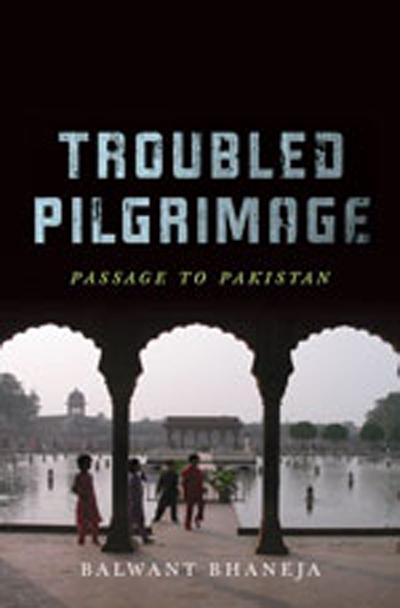 Born in Lahore in pre-Partitioned India, Balwant Bhaneja grew up in the exiled Sindhi Hindu community of Delhi, before emigrating to Canada. Troubled Pilgrimage is account of the author's journey to his ancestral Sindh in Pakistan. Struggling against the preconceptions nurtured in post-1947 India and his own recent fears about the country he's about to visit, the author finds in his travel the familiar and the strange, a homeland whose experience is as warm as it is wrenching, dispelling misunderstandings while raising profound questions about himself. The account is at once a meditation on exile, home, identity and being a modern Canadian, as it is a journey into the enchanting, mystical land that was lost to his people at the Partition. His travels are book-ended by another hunt: for the great leader Mahatma Gandhi, whom Bhaneja saw as a young child at prayer gatherings in Delhi. Born in Lahore in pre-Partitioned India, Balwant Bhaneja grew up in the exiled Sindhi Hindu community of Delhi, before emigrating to Canada. Troubled Pilgrimage is account of the author's journey to his ancestral Sindh in Pakistan. Struggling against the preconceptions nurtured in post-1947 India and his own recent fears about the country he's about to visit, the author finds in his travel the familiar and the strange, a homeland whose experience is as warm as it is wrenching, dispelling misunderstandings while raising profound questions about himself. The account is at once a meditation on exile, home, identity and being a modern Canadian, as it is a journey into the enchanting, mystical land that was lost to his people at the Partition. His travels are book-ended by another hunt: for the great leader Mahatma Gandhi, whom Bhaneja saw as a young child at prayer gatherings in Delhi. |
| |
|
| |
| Johanna Lessinger |
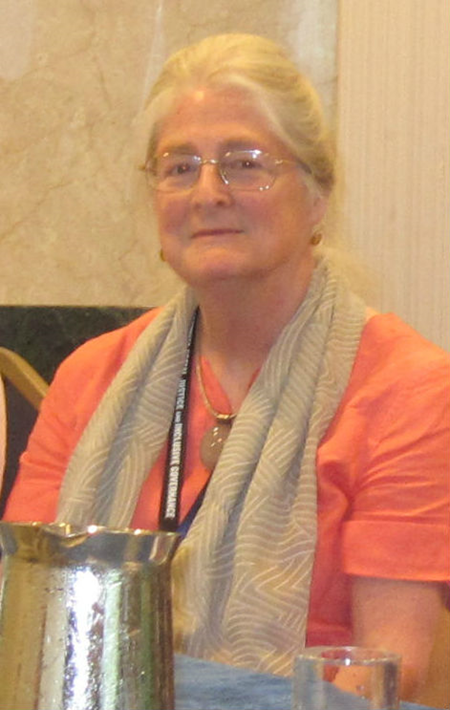 Johanna Lessinger is a social anthropologist and currently Distinguished Lecturer in Anthropology at John Jay College CUNY. She has done extensive research on gender roles and work in South India and recently published an article, “Love and Marriage in the Shadow of the Sewing Machine: case studies from Chennai” in a volume on the modernizing contexts of marriage in South Asia. In addition she has written about Indian-American immigrants to the U.S. Her ethnography From the Ganges to the Hudson: Indian Immigrants in New York City has been widely used in college courses. She is a board member of the New York-based Kathak Ensemble, which promotes and performs Indian classical dance. Johanna Lessinger is a social anthropologist and currently Distinguished Lecturer in Anthropology at John Jay College CUNY. She has done extensive research on gender roles and work in South India and recently published an article, “Love and Marriage in the Shadow of the Sewing Machine: case studies from Chennai” in a volume on the modernizing contexts of marriage in South Asia. In addition she has written about Indian-American immigrants to the U.S. Her ethnography From the Ganges to the Hudson: Indian Immigrants in New York City has been widely used in college courses. She is a board member of the New York-based Kathak Ensemble, which promotes and performs Indian classical dance. |
| |
|
| |
| |
| |
|
|

